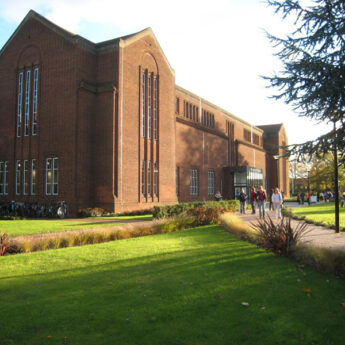“Tax minister” says reforms made to lure long-term investment
• Corporate tax rate to drop to 20% in 2015
• Goal to keep wealthy taxpayers in country
• Monetary policy parallels with Japan
Recent changes to Britain’s corporate taxation rules have been designed to promote the UK as a good place to do business, a message that David Gauke MP, exchequer secretary to the treasury, was keen to impress on Japanese firms and government officials during a visit to Tokyo in November.
“There is a great deal of interest among Japanese companies in terms of the investment opportunities that we are creating in the UK, and the purpose of this visit is primarily to make them aware of what we have done to make ourselves more competitive in this area”, Gauke told BCCJ ACUMEN.
“But it’s not just about telling them what we have done,” he said.
“It’s also getting across why we have taken these measures and reassuring them that these are not just short-term policies that we can reverse very easily.
“These changes are built on what is in the best long-term interests of the UK economy as well”, he added, having just arrived in Japan from Singapore, where he explained the changes to firms there during a similar mission.
When it was elected in 2010, the coalition government faced a number of serious economic problems, including the largest budget deficit among the Group of 20 (G20) nations, a sovereign debt crisis, and levels of borrowing that were higher than at any time in Britain’s peace-time history.
It was then clear that some tough decisions needed to be made regarding fiscal priorities and future directions, Gauke said during a 15 November luncheon organised by the British Chamber of Commerce in Japan at the Shangri-La Hotel Tokyo.
“We had to have fiscal credibility”, he said.
The UK government’s monetary programmes have some interesting parallels with those of Japan, where tax is also something of a political hot potato, particularly in light of the consumption tax hike next year.
Like Tokyo, London has applied quantitative easing as part of a broader policy of monetary activism, while at the same time it has enacted structural changes designed to make the UK more productive.
The reforms include a review of planning laws to permit the construction of new housing, changes to the employment law for small businesses, and a commitment to increased infrastructure spending, particularly on transport links. Related projects include Crossrail in London and the HS2, which will run from London to Birmingham, and then on to Manchester and Leeds.
Attracting the best
When it comes to alterations to the tax regime, the headline announcement in the UK this year was the reduction in corporate tax from 28% to 23%, with a further cut to 21% expected in April 2014 and, in April 2015, a final reduction promised to 20%—the lowest rate among the G20 member states.
“That does not make us a tax haven, but it does make us very competitive”, Gauke said.
Further measures include the creation of a 10% Patent Box regime, designed to encourage innovation by further reducing corporate tax for firms that exploit patents to develop or manufacture in the UK, as well as making the tax credit regime for research and development within Britain more generous.
Gauke acknowledged that cutting the top rate of income tax from 50% to 45% had met with opposition, but countered that, “If we want to send out the message that Britain is open for business, this is the sort of measure we have to take”.
“There are serious risks to the UK economy over the long term if we are not competitive”, he said, pointing out that the top 1% of income-tax payers in Britain contribute on average 30% of all income tax revenue.
And given the mobility of today’s wealthy elite, he said, failing to reduce that rate elevated the risk of them leaving the UK for a rival nation with a more lenient tax regime.
Gauke said the Japanese corporations he had met during his visit had been encouraged by Britain’s commitments on tax, although some had raised questions about future commitments to the European Union.
“The point that I made is that we want the EU to be much more pro-enterprise, pro-free trade and dynamic in order to open up the economy, and that Europe will have to reform to ensure that happens”, he said.
“There is genuine disquiet in the UK that the EU is not helping Britain as much as it should be—or, indeed, helping itself as much as it should be—in terms of being open and dynamic”, he said.
Gauke also touched on the overall state of the British economy, reporting that, “We are turning a corner in the UK after some tough years, largely because of the aftermath of the effects of the financial crisis”.
The rebound has been visible in the last two fiscal quarters, which have seen growth in the economy with further positive prospects emerging.
He noted that, for next year, the Bank of England is predicting a growth rate of 2.8%, which is a significant improvement on recent rates.
“It is vital that we maintain our discipline, and make some of the remaining difficult decisions on, for example, public spending”, he said.
“But equally, we have already taken some very substantial steps to increase our competitiveness and to ensure that the UK will succeed in the 21st century”.





